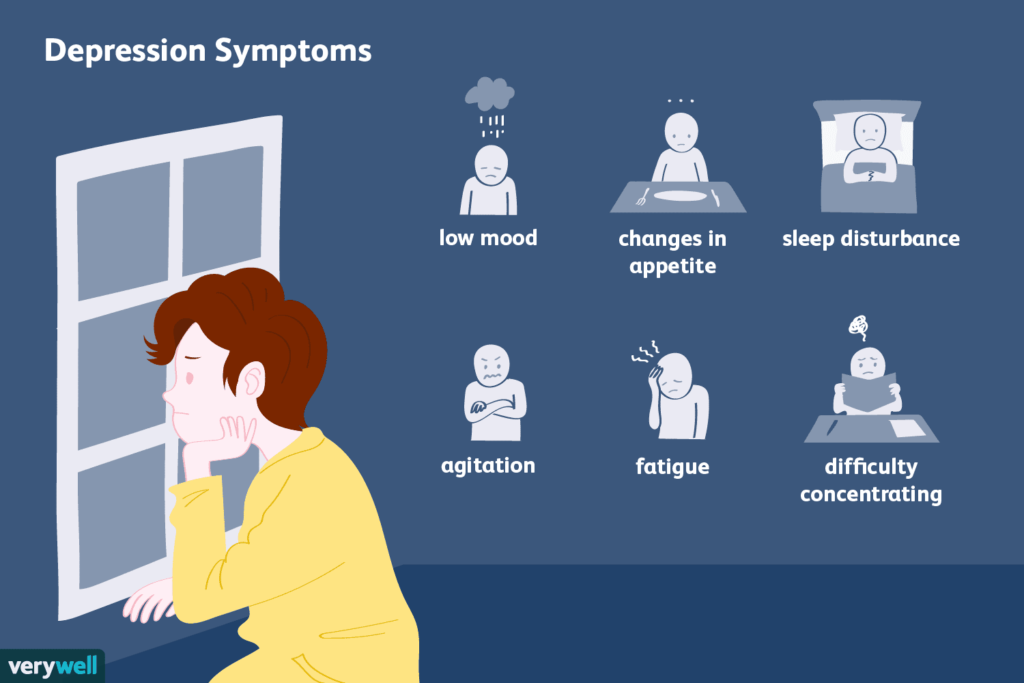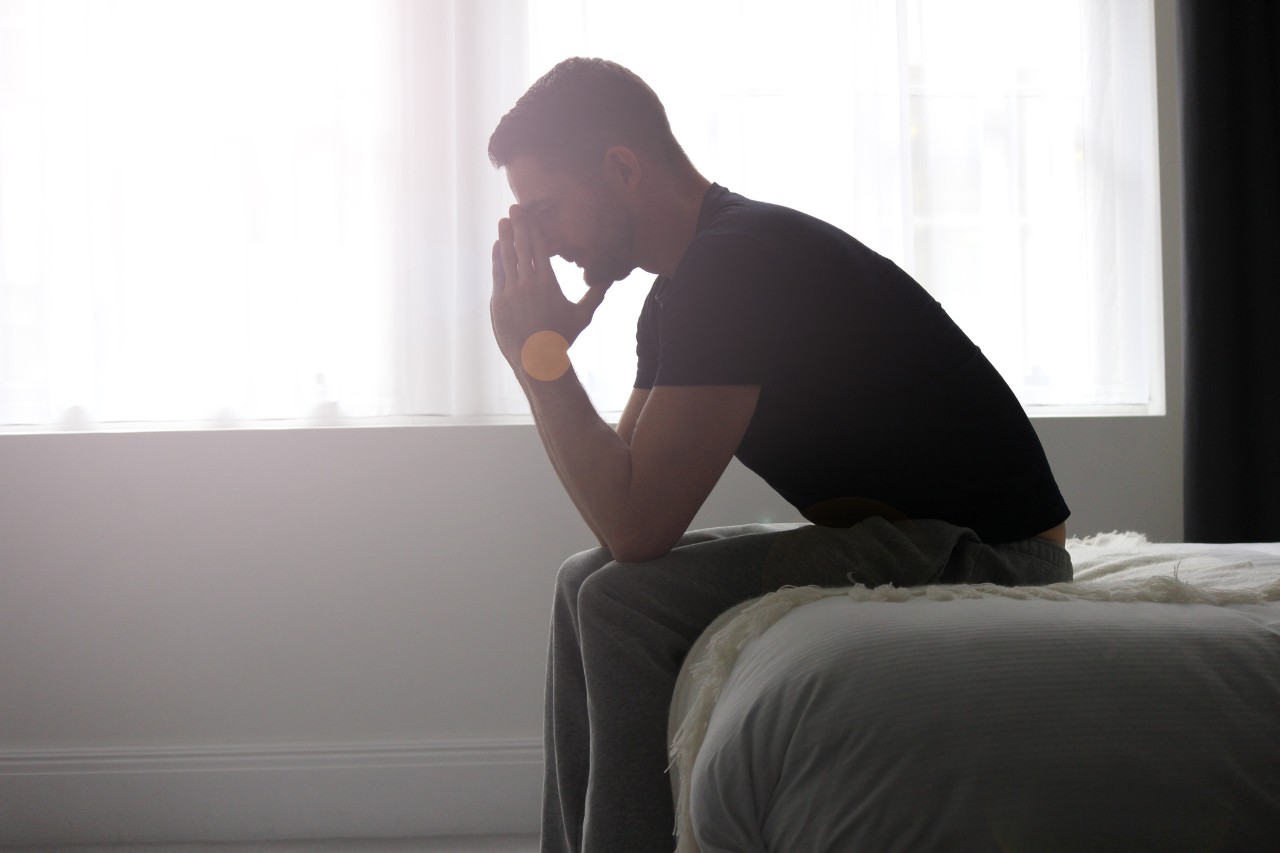A Quick Guide
Millions of individuals worldwide, regardless of gender or age, suffer from depression, a mental health disorder. However, men may feel depression differently than women do, and they may exhibit certain signs and symptoms that often go unnoticed. People of all ages and genders are susceptible to the widespread mental health disease known as depression. The World Health Organization estimates that over 300 million individuals worldwide suffer from depression, with men being less likely than women to seek treatment. The prevalence of depression in men is believed to be around 5.5%. For men to receive the right care and support, it’s critical to recognize the signs and symptoms of depression. In this article, we’ll discuss the signs and symptoms of depression in men, including both its physical and emotional manifestations, and offer advice on how to get help.
What is depression?
Mental health issues like depression can have an impact on one’s emotions, thinking, and behavior. It may result in sadness, a sense of helplessness, and a loss of interest in once-pleasurable activities. Depression comes in a variety of forms, such as major depressive disorder, dysthymia, and seasonal affective disorder. Everyone can experience depression, but men and women experience it in different ways as we have already established before.

Emotional symptoms of depression in men
In addition to experiencing physical symptoms of depression, men might also have emotional ones, such as feelings of worthlessness and hopelessness, a loss of interest in their previously preferred hobbies and activities, irritability or aggression, anxiety and restlessness, trouble paying attention or making decisions, and suicidal thoughts or behaviors. Men might exhibit emotional depression symptoms less frequently than women do, which can make it more difficult to identify and treat the illness. Men may communicate their depression more often through impatience, hostility, and aggressive behavior than through sadness and sobbing, according to a study.
Physical symptoms of depression in men
Physical signs of depression in men can be mistaken for those of other illnesses. Fatigue and low energy levels, sleeplessness or excessive sleepiness, changes in appetite and weight, unexplained aches and pains, digestive issues, and sexual dysfunction can all be among these symptoms. Research has found that males with depression were more inclined than women to have physical symptoms such as back pain and gastrointestinal issues.
If you experience any of these signs and symptoms, you should contact a doctor right away because they may be signs of a more serious underlying problem.
Watch: [Physical Symptoms of Depression]
Types of Depression in men
Although men, as well as women, can experience depressive symptoms, some types of depression may be more common in men. The various types of depressive disorders that may manifest in men are highlighted below:
Major Depressive Disorder (MDD)
Men of all ages can suffer from major depressive disorder, a prevalent form of depression. It is characterized by a chronic sadness or loss of interest in once-enjoyable activities. Alteration in appetite or sleeping patterns, tiredness, feelings of shame or worthlessness, and difficulties concentrating are some additional signs and symptoms of MDD.
Persistent Depressive Disorder (PDD)
A chronic form of depression that persists for a period of time exceeding two years has been identified as persistent depressive disorder, commonly referred to as dysthymia. Feelings of inferiority, hopelessness, and loss of energy are a few signs and symptoms that men with PDD may encounter. The symptoms of persistent depressive disorder can nonetheless significantly affect a man’s quality of life, even though they might not be as severe as those of MDD.
Bipolar Disorder
Bipolar disorder is a mood condition that can lead to periods of mania or hypomania in addition to periods of depression. During manic episodes, men with bipolar disorder may exhibit symptoms like a diminished desire for sleep, frantic thought, and risky behavior. They may suffer from signs and symptoms including sadness, exhaustion, and a loss of interest in activities during depressive episodes.
Seasonal Affective Disorder (SAD)
A form of depression known as seasonal affective disorder manifests during the winter when there is less daylight. Low energy levels, fluctuations in food or sleep patterns, and difficulty in concentrating are just a few of the signs and symptoms that men with SAD may encounter. Light therapy, which includes being exposed to light that is bright enough to resemble natural sunlight, can be used to treat Seasonal Affective Disorder.
Postpartum Depression (PPD)
A kind of depression known as postpartum depression affects new fathers shortly following the birth of their child. Men with postpartum depression may exhibit signs and symptoms like irritability, sadness, and changes to their food or sleep schedules. Therapy, medicine, or a combination of the two can be used to treat PPD.
Learn more about Mild Depression: 6 Telltale Signs, Causes, & Self-Help Strategies
Risk factors for depression in men
The likelihood that a man may experience depression can be increased by a number of risk factors, including biological ones like heredity and brain chemistry, environmental ones like stress and trauma, and behavioral ones like substance abuse and a lack of social support. Men might additionally be more susceptible to depression as a result of outside pressures like loss of employment or financial hardship. Furthermore, it may be more difficult for men to seek treatment for their depression due to societal ideals of masculinity and the stigma associated with mental health in general.
Coping mechanisms & barriers to treatment for men
Men may engage in substance misuse, social withdrawal, and aggressive behavior as coping strategies for depression. These coping skills, however, can work against them and make symptoms worse. A study that appeared in the Journal of Affective Disorders found that men with depression were more prone than women to abuse alcohol and act violently. Mental health stigma and social pressure to fit into masculine norms can be obstacles to men accessing medical care for depression. Men may feel uncomfortable or ashamed to ask for assistance, or they may think doing so indicates frailty.
Seeking help for depression in men
It is critical for men who are exhibiting symptoms of depression to get treatment. It is possible to treat depression with medicine, therapy, or a combination of the two. The fact that there is no one-size-fits-all method of treating depression and that what is effective for one particular individual might not be effective for another is crucial to keep in mind. As a result, selecting the best treatment strategy could involve some trial and error.
Medications
Men with depression may benefit from medication known as antidepressants. These drugs function by bringing the brain’s chemicals that affect mood into balance. Selective serotonin reuptake inhibitors (SSRIs), serotonin-norepinephrine reuptake inhibitors (SNRIs), tricyclic antidepressants (TCAs), and monoamine oxidase inhibitors (MAOIs) are some of the different types of antidepressants that are widely used.
Although antidepressants can be helpful in treating depression, some men might suffer from negative side effects and it may take them a few weeks before they start to work. In order to treat the symptoms while reducing side effects, it’s crucial to work carefully with a healthcare professional to determine the proper prescription and dose.
Therapy
Depression in men may be effectively treated with therapy. Men can identify and alter unfavorable thought patterns and behaviors that are contributing to their depression with the help of cognitive behavioral therapy (CBT), a type of therapy. Interpersonal therapy (IPT) and psychodynamic therapy are two more approaches to therapy that may be helpful.
Support groups can offer a secure and encouraging place for men to discuss their experiences and interact with other people who are going through almost identical challenges, in addition to one-on-one therapy. Support groups may be run by peers who have dealt with depression or by a mental health professional.
Combining Medication and Therapy
Combining medicine and therapy may prove a successful therapeutic approach for men suffering from depression. According to studies, combining psychotherapy with medicine can be more beneficial than using either approach alone. To control the symptoms, it’s crucial to work collaboratively with a healthcare professional to discover the most effective combination of medicine and therapy.
Key Takeaway
Men of all ages can be affected by depression, which is a common and treatable mental health problem. It’s crucial to seek treatment for depression, which may entail either medication, counseling, or a combination of the two. It’s vital to locate a mental health specialist with experience working with men. So they can offer a secure and free of judgment environment for you to communicate your concerns. Keep in mind that depression can be treated. You can live a fulfilling life with the right treatment and assistance.
We hope you found this article useful in learning more about the signs of depression in men along with how to seek proper help.
References
Emslie, C., Ridge, D., Ziebland, S., & Hunt, K. (2006). Men’s accounts of depression: Reconstructing or resisting hegemonic masculinity? Social Science & Medicine, 62(9), 2246-2257. https://doi.org/10.1016/j.socscimed.2005.10.017
Rottenberg, J., Gross, J. J., & Gotlib, I. H. (2005). Emotion Context Insensitivity in Major Depressive Disorder. Journal of Abnormal Psychology, 114(4), 627–639. https://doi.org/10.1037/0021-843x.114.4.627
Prevalence of Depression Among Adults Aged 20 and Over: United States, 2013-2016. (2018, February 1). PubMed. https://pubmed.ncbi.nlm.nih.gov/29638213/
https://www.dbsalliance.org/support/chapters-and-support-groups/
https://www.nimh.nih.gov/health/topics/psychotherapies
https://www.mayoclinic.org/diseases-conditions/depression/in-depth/antidepressants/art-20046273



 Weaponized incompetence: what it is and how to detect it
Weaponized incompetence: what it is and how to detect it  ADHD & Insomnia: What You Need To Know
ADHD & Insomnia: What You Need To Know  The Hidden Struggles of Undiagnosed ADHD in Adults
The Hidden Struggles of Undiagnosed ADHD in Adults  Amnesia: Understanding Its Causes, Types, & Treatment
Amnesia: Understanding Its Causes, Types, & Treatment  Understanding Echolalia in ADHD: Causes, Symptoms, & Strategies for Support
Understanding Echolalia in ADHD: Causes, Symptoms, & Strategies for Support  Narcissistic Personality Disorder: Symptoms & Causes
Narcissistic Personality Disorder: Symptoms & Causes